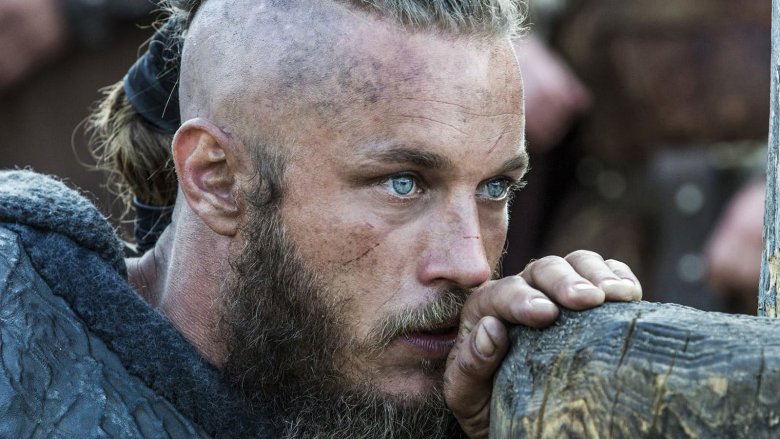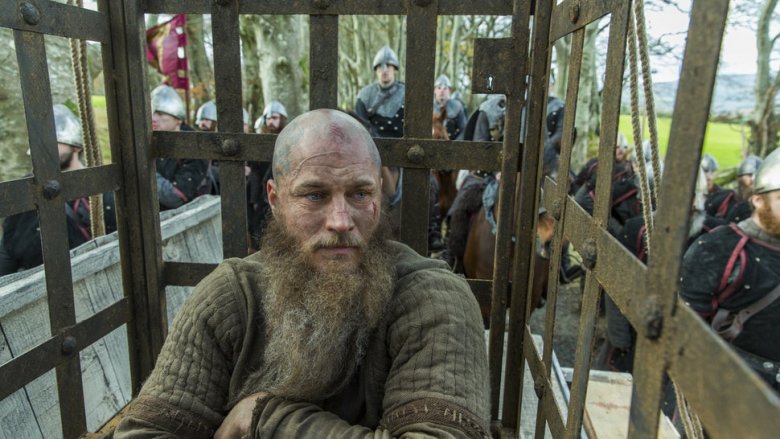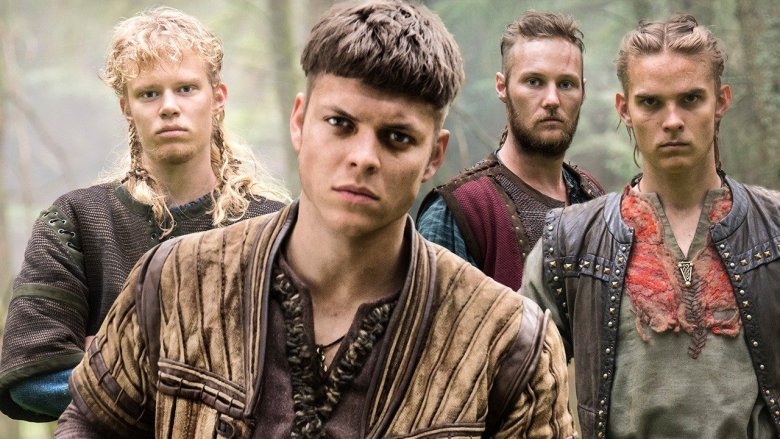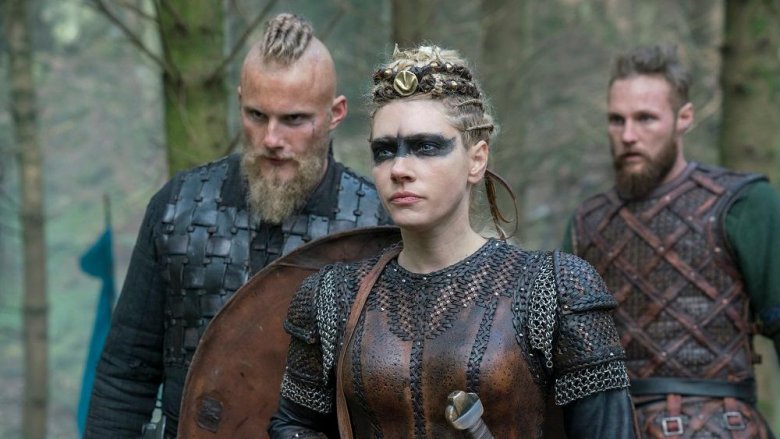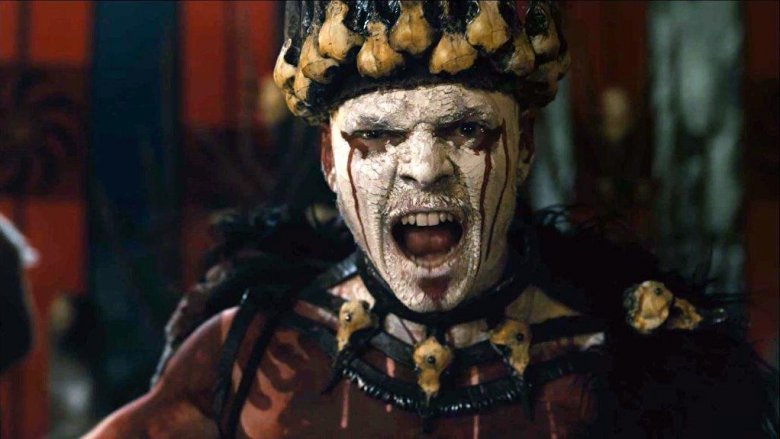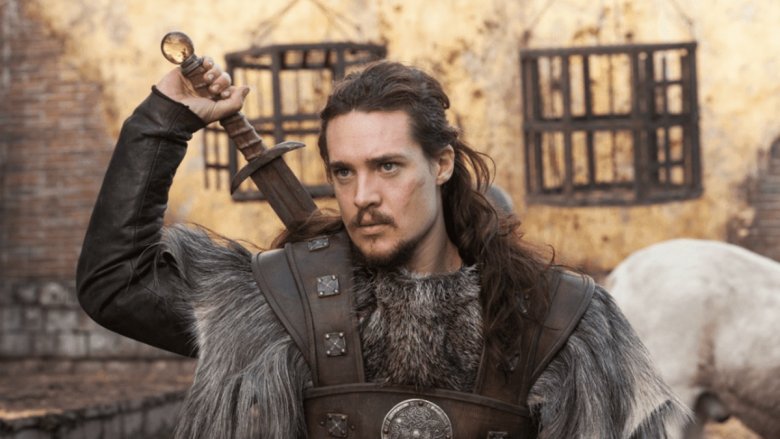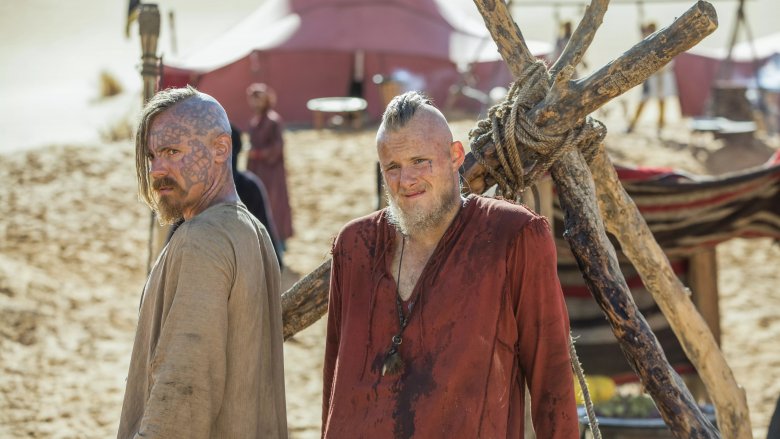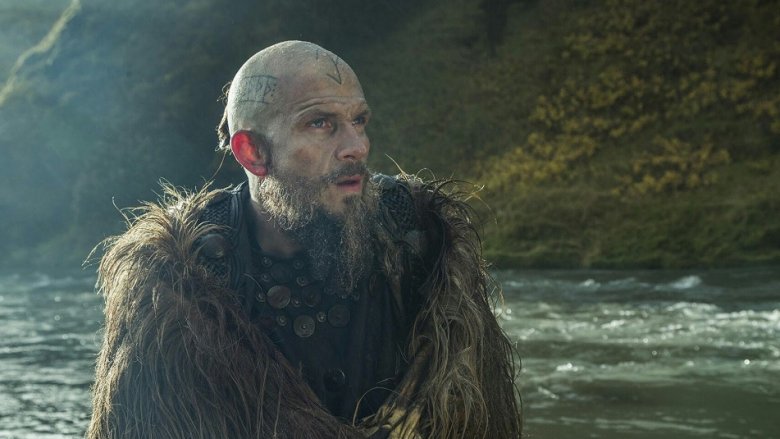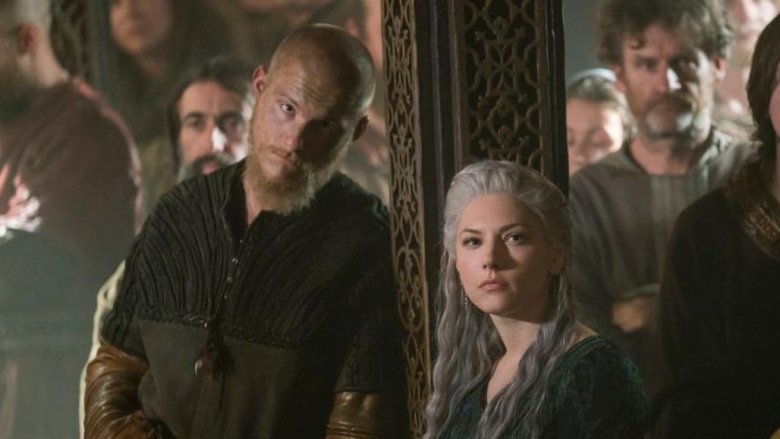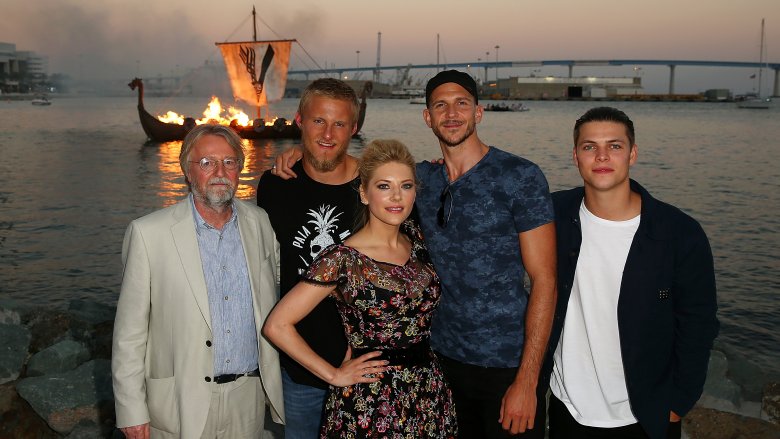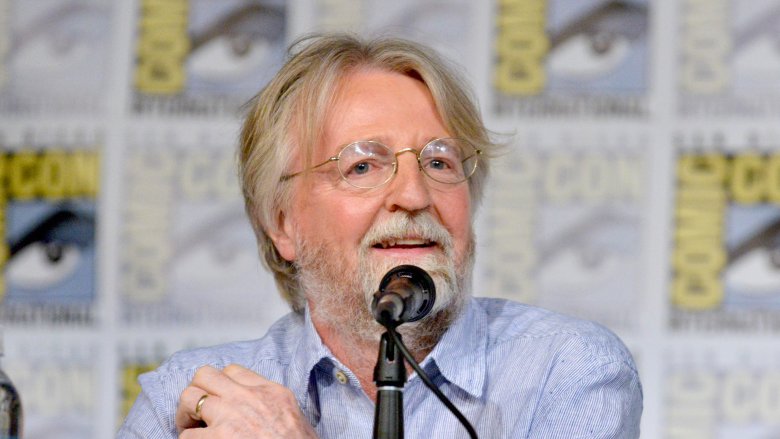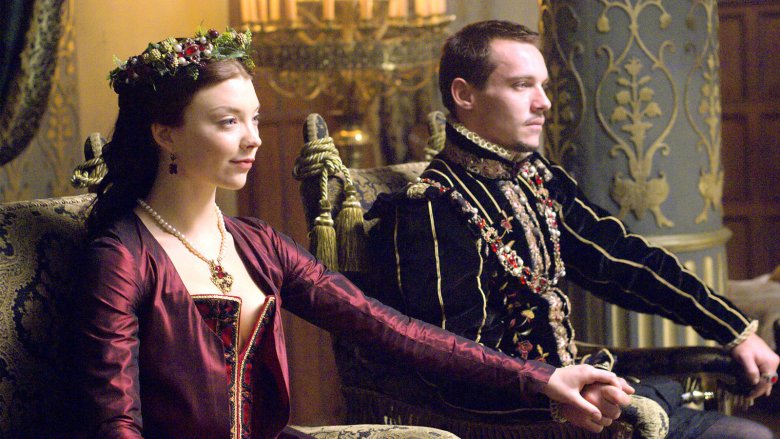The Real Reason Vikings Is Ending
When History announced that it was going to air its first-ever scripted series in 2012, the idea was met with some skepticism. The cable network wasn't known for its original shows and many outlets (Collider included) claimed that it was just "hoping to bank on the success of HBO's Game of Thrones," but the first season of Vikings proved the doubters wrong. While they share similar levels of violence, what set Vikings apart from Game of Thrones was the fact that it was based on real history.
"People think they know about the Vikings — we see references to them all the time in our popular culture from TV commercials to football teams—but the reality is so much more fascinating and complex, more vivid, visceral and powerful than popular legend," History's general manager Nancy Dubuc explained at the time. Showrunner Michael Hirst (The Tudors) did what he does best and turned this period in history into a fascinating drama, but much like the age of the Vikings, it wasn't destined to last forever.
In January 2019 we learned that the show would be ending after its 20-episode sixth season. According to Deadline, the final season has already been filmed and will drop at some point in 2019, with the last episode expected to air in 2020. But what exactly made History decide to axe its flagship show? This is the real reason why Vikings is ending.
The show never recovered from Ragnar's death
Growing up on his parents' farm in Australia, Travis Fimmel was a million miles away from the bright lights of Hollywood, but a chance encounter with a modeling scout changed the course of his life forever. After a stint in London, he decided to try his luck Stateside — and according to the Sydney Morning Herald, he was offered a contract instantly after "swaggering barefoot into LA Models." He became the face (and body) of Calvin Klein, but while he made money posing in his underwear, he was also fine-tuning his acting skills.
Fimmel had a number of roles in Australia prior to Vikings, but it was playing the show's enigmatic lead that brought him international attention. His intense and often sympathetic portrayal of farmer-turned-Viking leader Ragnar Lothbrok was the true heart of the show, so when the character was killed off in season 4 (thrown into a pit of snakes by King Aelle), it was a huge gamble. According to Forbes writer Erik Kain, it was a gamble that ultimately didn't pay off.
"Thank goodness," Kain said after learning of the cancelation. "The show has been lost at sea for a long time now, and probably should have wrapped with the death of Ragnar and departure of lead, Travis Fimmel." He isn't alone in this opinion — numerous viewers believe the show suffered because of Ragnar's death. Fans are still holding onto the slim hope that Ragnar will return in some form for season 6.
Ragnar's sons just didn't resonate with viewers
When Ragnar met his end, viewers were supposed to get on board with the idea of his sons heading to England to avenge his death. We were introduced to his first-born son, Bjorn, way back in the first season, but we didn't really get to know the rest of Ragnar's brood until the season 4 time jump. After Ragnar's defeat at the hands of his brother Rollo, the feared Viking warrior vanished from his homeland. When he finally returned, his sons had become men.
"It was very important to bring on Ragnar's sons," creator Michael Hirst told Variety after the adult versions of Sigurd, Ivar, Ubbe, and Hvitserk were introduced. "I've invested a lot of time, hope and expectation in these sons. It's very important that the audience invest in these new characters." Unfortunately for Hirst, this never really happened. Despite his best efforts, audiences just didn't seem as interested in watching Ragnar's offspring, even if they were avenging the man himself.
"Ragnar's story was over a long time ago and none of the stories that have come since have resonated as much with viewers," Forbes reported after news of the show's end broke, while TV Equals placed the blame directly at the feet of Ragnar's sons: "The death of Ragnar Lothbrok has left a void that his sons have not yet been able to fill... most of Ragnar's sons are kind of boring."
The viewing figures have been in decline
History ordered a sixth season of Vikings before season 5 had even begun. At the time, nobody knew that season 6 would be the last, a move that seems to have been influenced (at least in part) by a decline in viewership. Following the season 5 premiere, CarterMatt tried to soften the blow by suggesting that it's "hard for any cable series to amass large numbers these days," but it couldn't ignore the facts.
"The bad news is that these ratings are down fairly substantially from the 0.8 rating that the show generated for its season 4 premiere back in February 2016," the outlet confirmed. "It's also down about 9 percent in total viewers. Versus the average season 4 rating, the Vikings premiere is down about 13 percent in the demo and 4 percent in the viewers." This wasn't a new trend — the previous season also saw a significant drop.
According to TV Series Finale, season 4 of Vikings was down by a whopping "28 percent in the demo and 44 percent in viewers." History renewed anyway, but the network must have recognized the beginning of the end at this stage. One surefire way of getting those viewers flirting with the idea of abandoning the show to stick with it is announcing that the next season will be the last. It seems the network wanted to wrap Vikings up before it saw a mass exodus.
It was in danger of doing a Walking Dead
Vikings season 5 has an impressive 90 percent rating on the Tomatometer, but the critics weren't on the same page as viewers. The 20-episode fifth season holds an audience score of 85 percent on Rotten Tomatoes, and while that would be considered a success for most shows, it's the lowest audience score since the series began. A drop in audience approval doesn't necessarily spell disaster, but the early signs of fan fatigue have been showing. It appears History decided to act before faith in the Vikings name dwindled, as happened with The Walking Dead.
Many feel that AMC's zombie series has long since outstayed its welcome, and parallels between The Walking Dead and Vikings have started to appear over the past few seasons. Not only has interest in premieres been waning (the first episode of The Walking Dead season 9 attracted 6.08 million viewers, a big drop from the 11.44 million that tuned in for the season 8 opener), ratings have also dipped following character deaths.
So has Vikings managed to avoid being tarred with the same brush as The Walking Dead by calling time at six seasons? According to some fans, it's already too little, too late. "Both shows went from being great to shoddy with awful writing and plot-driven arcs rather than meaningful character development," one frustrated Redditor said. "Lagertha is Rick Grimes — she has gone from a charismatic character who has gone through so many different developments into an action hero with no flaws."
The emergence of rival shows
When the first episode of The Last Kingdom aired in 2015, some had already dismissed it as a Vikings knockoff. By the time the first season was done, many minds had been changed. "BBC America's sprawling, arresting eight-part historical miniseries The Last Kingdom proves that there's room enough on television for more than one Viking invasion," The AV Club said in its glowing review. The show (based on the Saxon Stories novels by Bernard Cornwell) was praised by critics across the board, creating an instant rivalry with Vikings.
Of course, Vikings and The Last Kingdom aren't the only two shows set during that tumultuous period in European history. When Erik Kain expressed relief over Vikings ending in his Forbes piece, he pointed out that the market was becoming saturated. "We have The Last Kingdom airing still on Netflix after all," he said. "Oh, and there's also the wonderful Norseman. Viking shows are becoming like zombie shows."
Norsemen is a comedy (The Guardian called it "Monty Python meets Game of Thrones") and therefore was never really a direct threat to Vikings, however, its success further proves that History isn't the only network capable of creating a compelling show about the Viking way of life. The Viking trend has also hit the big screen — Northmen: A Viking Saga arrived hot on the heels of Vikings in 2014, and Norse culture remains prevalent in Hollywood today thanks to the How to Train Your Dragon franchise. Viewers now have multiple options when they want a Viking fix.
History was running out of history
The trouble with making shows about Vikings is that there's precious little history from the days of those first raids. "None of the Vikings of that early era left any written records whatsoever to tell of their exploits," Justin Pollard (Michael Hirst's historical advisor on Vikings) wrote for Biography. "What we do have are the scant chronicles of the people they attacked and the much later saga legends which embroider their history to the glory of the Scandinavian people."
Nobody can say for sure whether Ragnar Lothbrok even existed. Hirst claims there's "substantial evidence" suggesting that he did, but he's admitted that big gaps needed to be filled in. "Even if he didn't exist it was necessary that he did for the story, for my saga that I was going to tell," he told History Extra. Hirst and Pollard stuck to the scraps of history available to them whenever they could, but at this point the tank is practically dry.
Ragnar is dead (his death by snake pit was just one of the many differing stories of his demise) and the little we actually know about his sons has pretty much been covered on Vikings. Bjorn has already visited the Mediterranean and Africa, just like he did in legend. He and his brothers have already avenged their father's murder, performing the brutal "blood eagle" on English king Aelle. The show was on the verge of venturing into pure fiction when History pulled the plug.
Some of the story arcs were heading nowhere
Gustaf Skarsgård's Floki has been a fan favorite since day one, but the character underwent wholesale changes in season 5. Ragnar's eccentric boat builder remained a central figure in Vikings until the murder of his leader and good friend. He sailed with Ragnar's sons as part of the Great Heathen Army, but once they'd avenged him, Floki became a spare part. He took to the seas alone and put himself at the mercy of the Gods, who (in his opinion) led him to what he believes to be Asgard, but we know today as Iceland.
Floki decides to bring a handful of settlers to this new, wild land, hoping to build a community free of the violence that had become an everyday part of Viking life. Despite Floki's attempts at keeping the peace, petty arguments turn into blood feuds and the settlement struggles. It ought to have run across a few episodes at best, but the Iceland plot (jokingly dubbed Survivor: Iceland Spa Retreat by one fan) was still ongoing at the end of season 5, testing the patience of many viewers.
"I can't believe I gave Hirst the benefit of the doubt with this storyline," one ticked off Redditor wrote. "The drama between Eyvind and Floki has been forced from the start, and they've made absolutely no effort to get us to care about any of the new characters." Floki's voyage to Iceland was inspired by true events, but sadly it made for some pretty boring television.
The biggest stars are in demand elsewhere
When Travis Fimmel departed Vikings, Katheryn Winnick became the new anchor of the show. Ragnar's first wife Lagertha has always been loved by the fans (when the official Vikings Twitter account asked if people preferred her over Ragnar's second wife, Aslaug, they emphatically sided with the shieldmaiden) so this seemed a smart move. Winnick made a name for herself playing Lagertha, and like Fimmel, it was only a matter of time before she too moved on to bigger things.
Vikings may have sailed a little off course in season 5, but Winnick remains in demand. The Dark Tower was a letdown for her and Polar didn't exactly go to plan, but Winnick is set to return to TV with a brand new Netflix show in 2019. "Wu Assassins, set in San Francisco's Chinatown, is a martial arts crime series with supernatural elements," Deadline confirms. Winnick (who holds black belts in karate and taekwondo) will play undercover cop Christine "C.G." Gavin in the show, fronted by The Raid star Iko Uwais.
Winnick's in-show son Alexander Ludwig (who, like her, has now made more Vikings appearances than Fimmel) is also a hot property thanks to his portrayal of Bjorn Ironside. Ludwig had previously appeared in the Hunger Games franchise, but Vikings catapulted him to new levels of fame. "I'd never experienced anything like that," he told Channel 24. "It's amazing how much this show has really affected people in all walks of life globally."
Six seasons was enough for Hirst
The decline in ratings was undoubtedly on the minds of History execs when they agreed to bring Vikings to an end, but Michael Hirst didn't mention any of that when he sat down with Variety in January 2019. Officially, the interview was about the season 5 finale, but the show's cancellation inevitably came up.
Pressed for details, Hirst claimed that six seasons was actually enough time for him to tell the story he'd wanted to tell from the very beginning. "I always knew where I wanted the show to go and more or less where it would end if I was given the opportunity," he said. "What I was trying to do was write the saga of Ragnar Lothbrok and his sons. After six seasons and 89 episodes, that's what I felt — finally — I'd done... I had no reason to want to continue it beyond that."
Hirst was quick to remind Variety readers that the funeral pyre hadn't been lit just yet. In an effort to lift spirits among the wounded fans, the showrunner started hyping up the sixth and final season. "There are 20 new episodes to come," he said. "We visit three new worlds in those episodes, we go through great tragedies and great heroism, and if you have tears to weep be prepared to weep them as you watch season 6. I'm very proud of the show. I did what I wanted to do, that's the truth."
A 'continuation series' is already in development
Losing Vikings is a huge blow for the show's many dedicated fans, but it was softened by news that a spinoff series is on the cards. When Variety asked Hirst what he had planned for this new show, the writer and producer said that he considers it a "continuation series." "I'm still going to be very involved," he explained. "Jeb Stuart is the other writer and it is exciting, but my main focus was on my characters."
Hirst went on to explain that he had developed an attachment to the characters he brought to life in Vikings, which is why he wanted to be involved in any new show set in that world. "I have to say that they're not characters to me," the history buff said. "I write so much about them, I've lived with them for seven years. They're real people to me. So I care, and have been caring, about them for a long time. I want to guide them through whatever storylines they have."
So does that mean we'll see some of our favorite Vikings characters pop up in this continuation series? And what does continuation series even mean? "Continuation means that if we make it, it will be connected to my saga," Hirst explained. "It may not involve necessarily the same characters. I can't go into more details than that, but for the fans of the show it will be a continued enjoyment of the Vikings experience."
Did they cancel too soon?
Despite everything we've discussed, many Vikings fans still believe the show is being sent to Valhalla way too soon. Disgruntled viewers took to Twitter to vent when the news broke, comedian Kathleen Madigan among them. "Vikings [is] being canceled after season 6," she tweeted. "I'll just go ahead and prepare my own viking funeral in solidarity. Sad news." If Hirst wants to call time on the show he created that's his prerogative, but was he a little too hasty?
He may have been on the verge of running out of actual history to work with, but that doesn't necessarily mean Vikings had to end. The Tudors was notorious for being historically inaccurate, though even leading historians admitted that the things Hirst added worked well for TV. "Yes, the scriptwriters may have taken liberties with the facts," Dr. Tracy Borman told The Telegraph, "but they have also succeeded in re-creating the drama and atmosphere of Henry VIII's court."
Vikings star Alexander Ludwig praised Hirst's willingness to take a "creative liberty" with the show, which he could have continued to do for many more seasons. It wasn't meant to be, however, and in the end the fans simply have to respect his decision. We can take solace in the fact that there's a follow-up show in the works, but for many, Hirst will never top Vikings.
